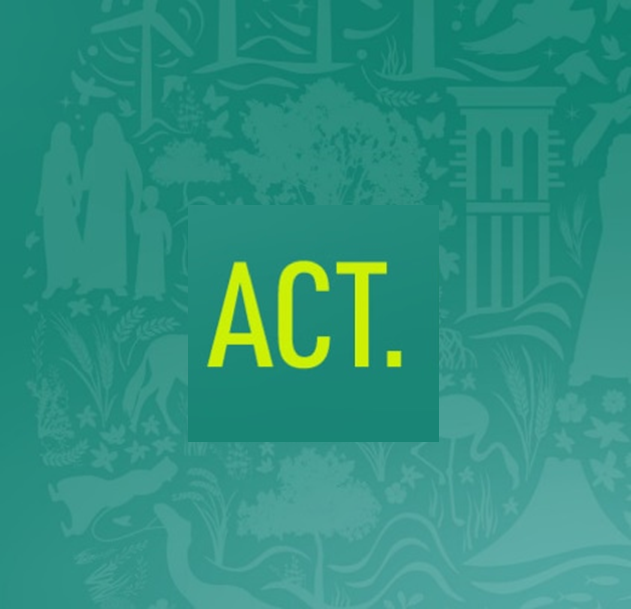
- Date
- 19th December 2023
- Categories
- Clean Cooking, COP28, Electric Cooking
By Prof Ed Brown, Alicia Butterfield, Dr Richard Sieff and Dr Simon Batchelor
The launch of the Global eCooking Coalition was a main stage session at COP28, which the UKAid funded Modern Energy Cooking Services research programme assisted in organizing, alongside SEforALL, EnDev and GEAPP. The session was called “Electrifying Cooking – A Just Transition Towards Net-Zero” and had many high-level speakers who discussed the enduring problem of clean cooking, made financial commitments to eCooking, discussed how eCooking was being implemented, and included the formal launch of GeCCo.

A 12 minutes Video summary of the session can be found here
The scene was set for the scaling potential of eCooking. At the core of the case for eCooking is the idea that at scale it will leverage the gains and innovations of existing and future electricity infrastructure. Many of the speakers discussed how SDG7.1.2 on clean cooking is far off meeting its target for 2030. Several of them attributed this to clean cooking being an ‘orphan’, an afterthought, within SDG7 when compared to the global investment and focus on electricity access. That idea of integration with the broader clean energy sector led to some of the most exciting announcements as outlined below.
- Dr Fatih Birol Director IEA (Video 5 mins) said that the IEA had calculated that $4B a year between now and 2030 would give universal access to clean cooking to Africa, and pledged to run a high level conference in 2024 to raise such funding. He noted that $4B is an achievable finance when considering how that much is spent in the coffee houses of Europe every week. We look forward to working with the IEA and our other partners in planning for the most sustainable ways of making their vision a reality.
- Damilola Ogunbiyi SRSG CEO SEforALL (Video 4 mins) pointed to their findings in Nigeria which found that utilizing the existing infrastructure (and looking at planned developments), eCooking was a least cost option for attaining clean cooking for a significant portion of the population when compared to LPG. Damilola also pointed to the climate impact of biomass cooking and reiterated the call for it to be addressed as part limiting warming to 1.5C.
- Wendy E. Hughes, Regional Director World Bank (Video 4 mins) took the opportunity to announce that the $5B ASCENT programme had been approved by the WB board just before COP. She noted this had a $5 Billion envelope of funding and was intending to crowd in another $10 Billion from the private sector. The WB have eCooking written into their programme documents and work packages, and so, while it is difficult to isolate the “funding for eCooking”, the whole $5 Billion will contribute either directly or indirectly. This is noteworthy because it integrates clean cooking action into the broader modern energy planning. This is something that SEforALL are now applying in all their work.
- HE Adnan Amin, UAE COP28 CEO (Video 3 mins) reiterated the UAE $4.5B commitment to clean energy in Africa, made at the Africa Climate Summit, was inclusive of eCooking and again spoke of keeping eCooking in mind during the planning of clean energy development and incorporating it effectively where appropriate.
- Elsewhere, the African Development Bank committed to spending 20% of its energy programming on clean cooking (potentially $2 Billion over the next ten years), and in the GeCCo launch session, Kevin Kariuki, Vice President AfDB (Video 4 mins) acknowledged the incredible scaling possibilities of eCooking and said that AfDB will be there. He cited their recent approval of funding for a last mile connectivity project in Kenya which includes eCooking, and builds on, KPLC, the Kenyan utilities ACS commitment to reach 500,000 households by 2026.
- Joseph Ng’ang’a Managing Director GEAPP (Video 4 mins) announced that it would seek to support GeCCo’s mission in scaling electric cooking noting that there are already 20 organisations engaged in the coalition and the action pledges already announced for certain countries.
- René van Hell, Ambassador of Sustainable Development for The Netherlands, representing the EnDev donors, (Video 4 mins) pointed to the EUR 10m investment for promoting eCooking already approved by the EnDev Consultative Group as a contribution to GeCCo and to the EnDev ambition through the Global eCooking Accelerator (GeCA) to raise another EUR 50m.
- Vijay Rangarajan, Director-General FCDO UK Aid (Video 4 mins) noted and formally announced that MECS itself had had a £15m uplift for its work on eCooking.
- Prof Ed Brown (Video 4 mins) spoke of the SOLCO initiative, officially launched at the Global Refugee Forum. The SOLCO (Solar Electric Cooking) Partnership is the displacement-inclusion project which is part of GeCCo. SOLCO aims to transition at least 250,000 households in refugee hosting districts to solar e-cooking by mobilising 100 million USD in various forms of capital investment by 2027.
- Uganda has now set a target for eCooking of 38% by 2030. Hon Robinah Nabbanja the Prime Minister of Uganda (Video 7 mins) spoke of how Uganda is developing an eCooking strategy, with various associated action components.
- Nepal has set a target of 25% uptake of Cooking by 2030. Hon Shakti Bahadur Basnet Minister of Energy Water Resources and Irrigation Nepal similarly discussed how Nepal, (Video 6 mins) which has a high reliance on imported LPG, and explained how Nepal was pivoting to eCooking for improved energy security and a lower cost approach to clean cooking, having already raised funds from the Green Climate Fund.

These financial commitments complimented commitments made to clean cooking made elsewhere at COP28 including a follow-up session on implementing GeCCo held in the SDG7 Pavilion on the 8th December. For instance, Ash Sharma of The Modern Cooking Facility for Africa which MECS research has given input to its formation, announced Norway as a new contributor, providing EUR 17 million over a period of six years. We note that MCFA has eCooking built into its intentions. The Africa Go Green Fund (AGG), a fund managed by Cygnum Capital Asset Management, announced strategic financing of $10 million to BURN Manufacturing (BURN) for Mozambique, Nigeria, and the DRC. We note that while this funding initially focuses on the BURN improved biomass stove, it is likely to fold in BURN’s developments of eCooking products over the longer term. BURN has also accessed funding from Innovate UK as part of the Ayrton Fund, to develop its eCooking solution further.
The potential of electric cooking in institutional settings was brought to the foreground in another SDG7 Pavilion event. In the context of the School Meals Coalition Roy Steiner, Senior VP of Rockefeller, made the case strongly for the use of electric pressure cookers given their incredible efficiency, potential for carbon finance support and nutritional benefits.
At sessions in individual country pavilions, there was a focus on clean cooking and in some cases eCooking.
In the Kenya pavilion organised by the Ministry of Energy focused on the role of eCooking within the emerging National Clean Cooking strategy. Attention was drawn to the opportunities for carbon finance given the high percentage of renewables in Kenya’s generation portfolio and the opportunities for KPLC to nurture eCooking and increase revenues via tariff reductions.
In the Nepal pavilion co-organised by our partners PEEDA, the session considered the mechanisms needed to support the government’s ambitious targets for the accelerated scaling of eCooking.
In the Sierra Leone pavilion organised by Kandeh Yumkella’s team, there was a strong clean cooking component as part of energy transition in Sierra Leone. Once again the integration of eCooking into national plans for a coordinated scaling of energy access was discussed. The session featured a rich discussion over the economics of renewables and low carbon transitions and the role of eCooking in supporting the profitability of such investments with Carlijn Nouwen of the Climate Action Platform for Africa).
In the Togo pavilion with colleagues from across West Africa and representatives from the Access Coalition marked the launch of the new African Smoke Free Initiative amongst the region’s many CSOs.
Indeed elsewhere in COP28 H.E. Samia Suluhu Hassan, the President of the United Republic of Tanzania drew attention to clean cooking and the African Women Clean Cooking Support Programme (AWCCSP) was launched. As explained by our colleague Sheila Oparaocha, this initiative grew out of one of the projects funded under a collaborative initiative, the Gender and Energy Innovation Facility, of MECS, EnDev and Energia.
Gauri Singh, DDG IRENA (Video 4 mins) launched a report on Renewables-based electric cooking: Climate commitments and finance, in the GeCCO launch session, which was one of the first of its kind, a stock take on eCooking. That complimented some of the other COP28 report announcements on clean cooking. ICLEI working with CCA drew attention to the possibilities of clean cooking in urban areas, while the CCA drew attention to how clean cooking intersects with the food systems.
Our colleagues at CLASP laid out critical moves on energy efficiency in their report CLASP’s Net Zero Heroes report . They noted that energy efficiency, including eCooking, has finally secured its place as an affordable, scalable climate solution.

As COP28 concluded, we note that the ‘outcome of the first global stock-take’ stated the following that is particularly relevant to clean and modern energy planning inclusive of eCooking.
The outcome:
- reiterated phasing out inefficient fossil fuel subsidies that do not address energy poverty or just transitions, as soon as possible, and
- transitioning away from fossil fuels in energy systems, in a just, orderly and equitable manner, accelerating action in this critical decade.
- called for tripling renewable energy capacity globally and
- doubling the global average annual rate of energy efficiency improvements by 2030.
- emphasized the urgent need to strengthen integrated, holistic and balanced non-market approaches in accordance with Article 6, paragraph 8, of the Paris Agreement, in the context of sustainable development and poverty eradication, in a coordinated and effective manner, including through mitigation, adaptation, finance, technology transfer and capacity building, as appropriate.
Featured Image and Graphics Credit : screen grab of COP28 web feed based on Fair Use Act.